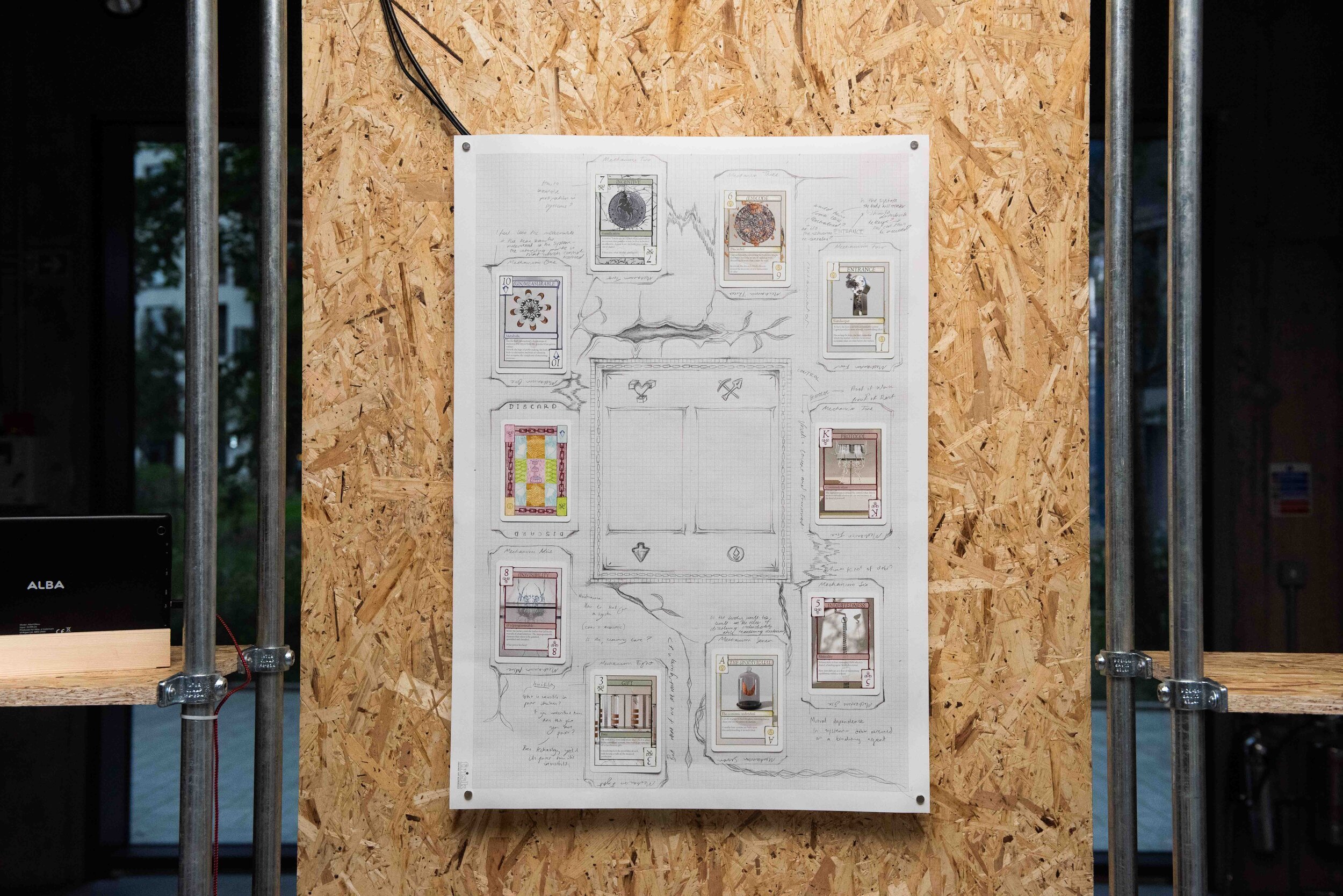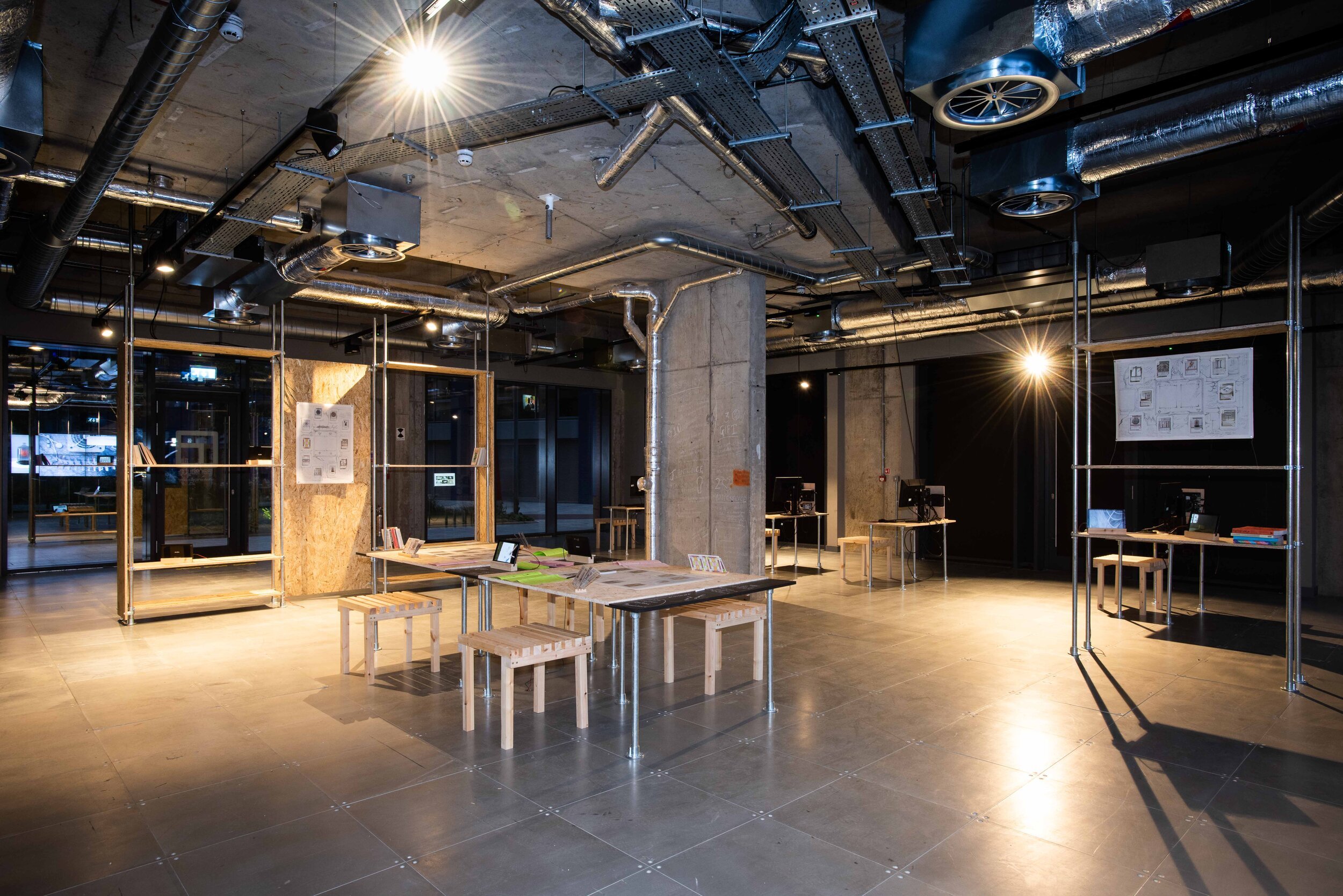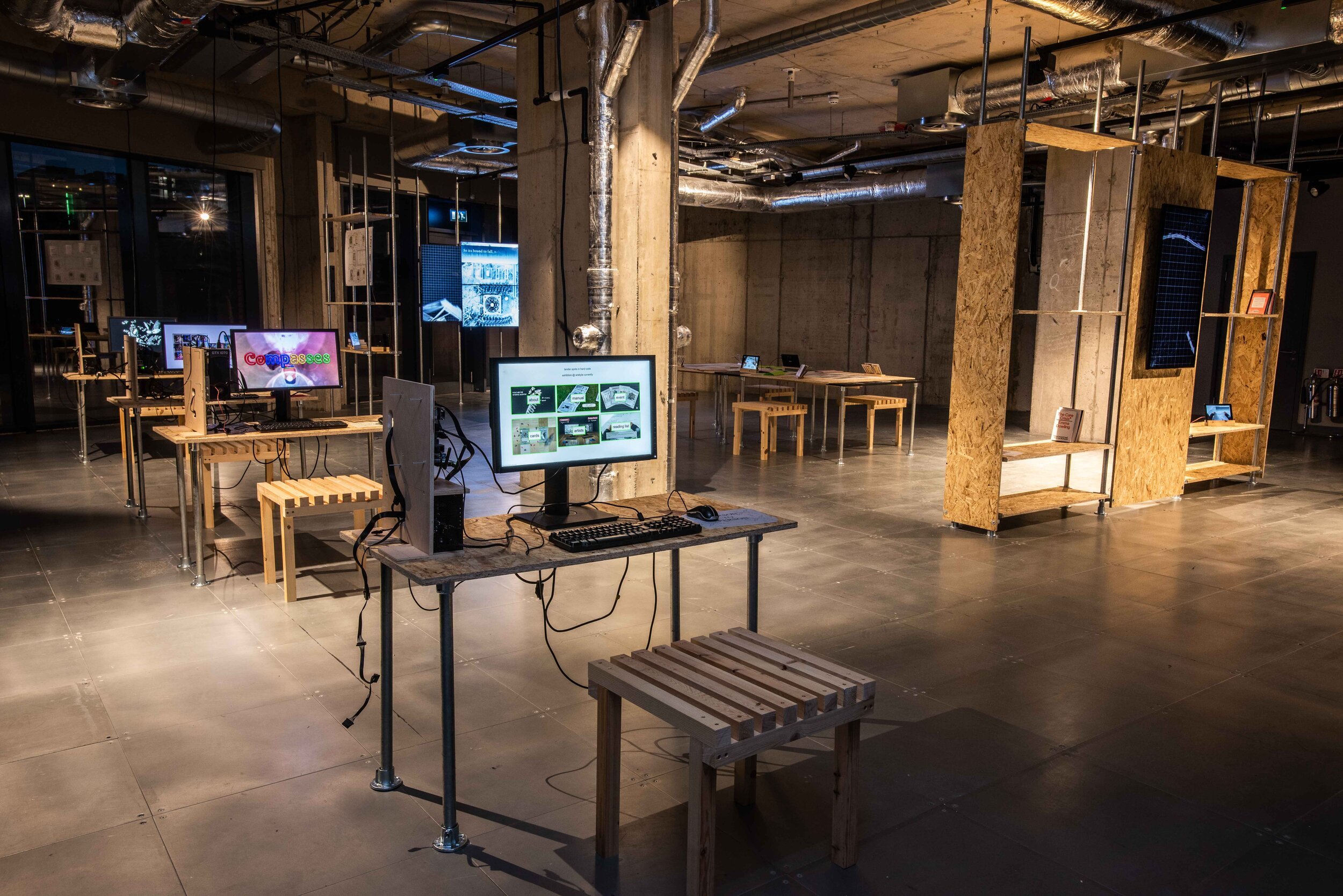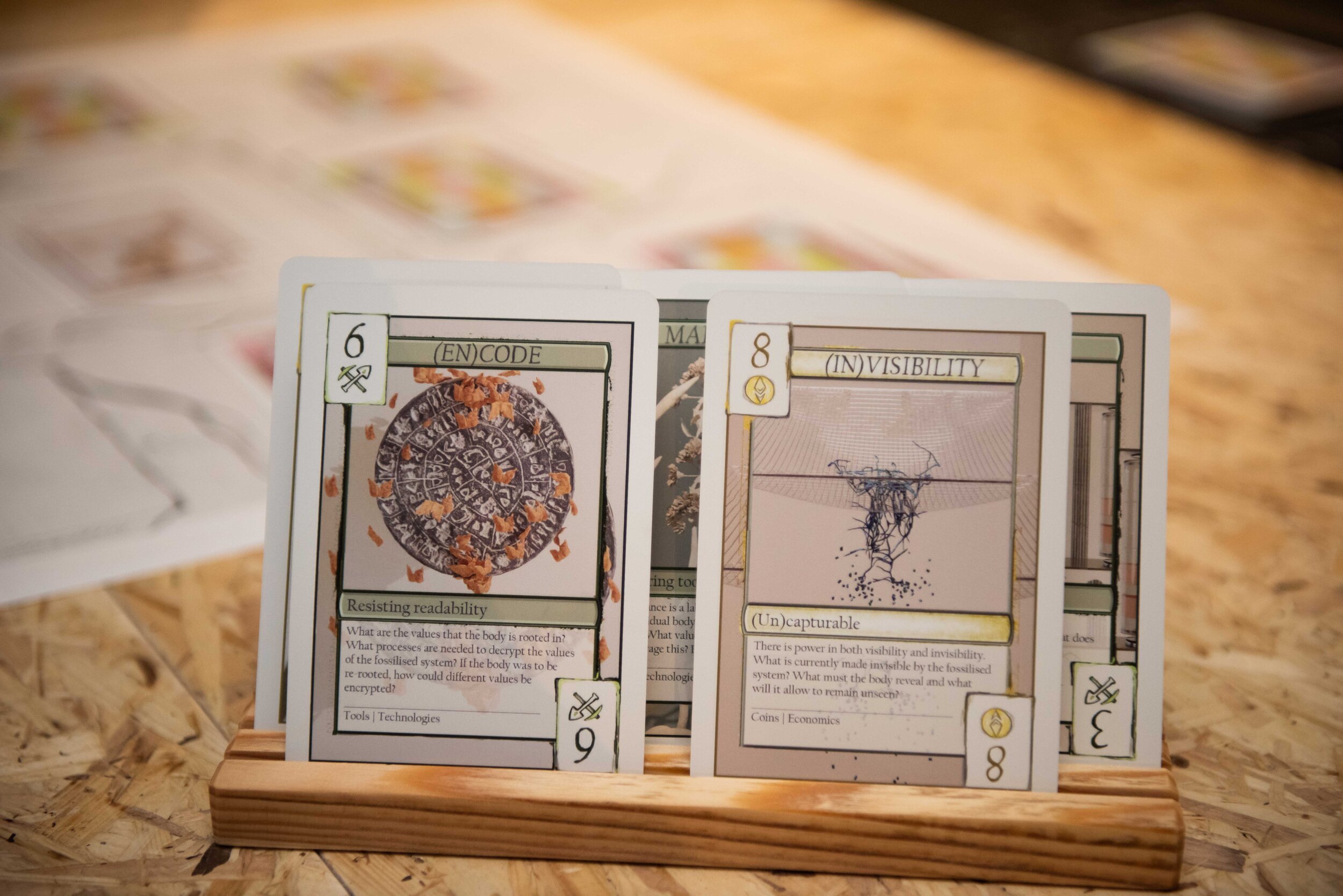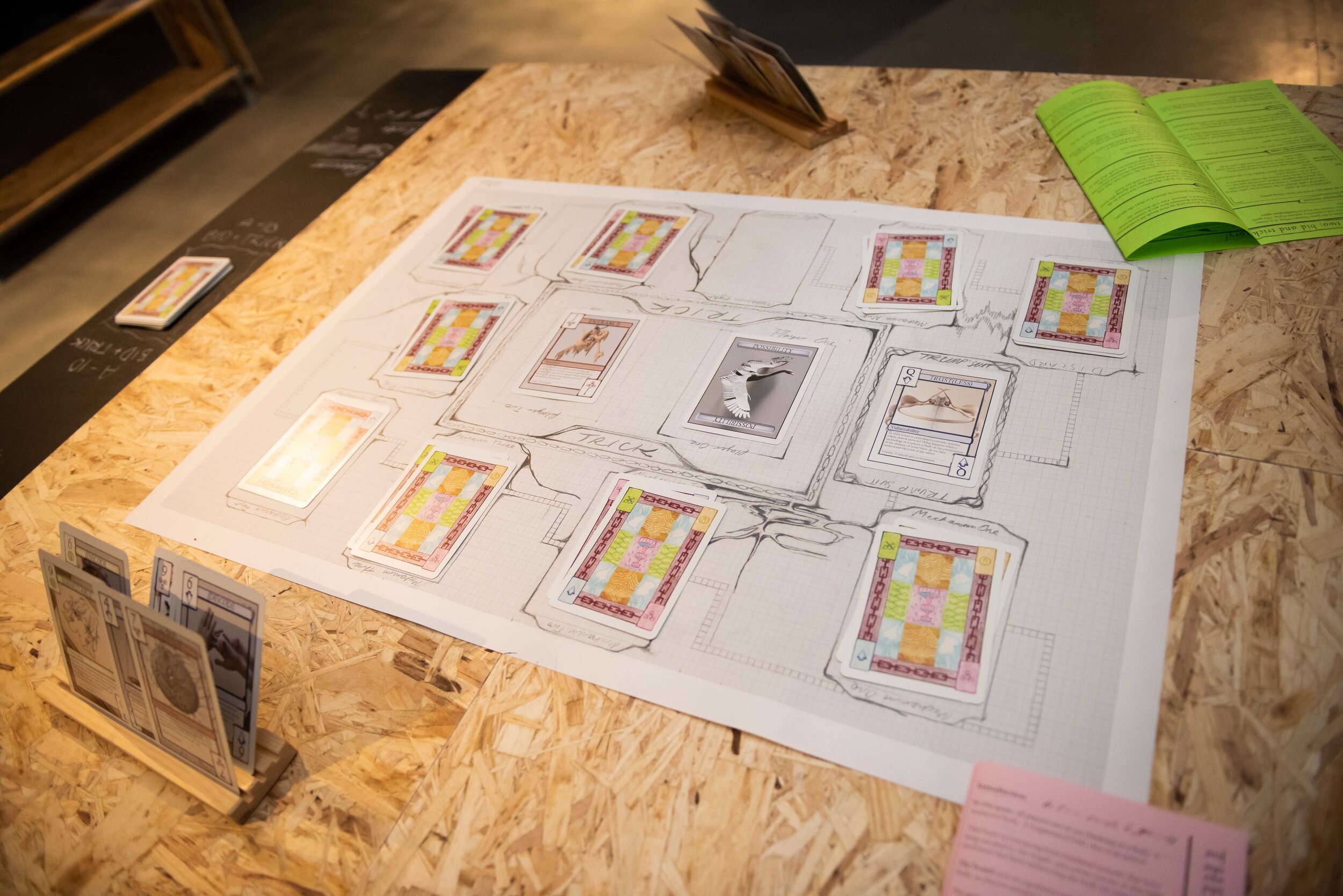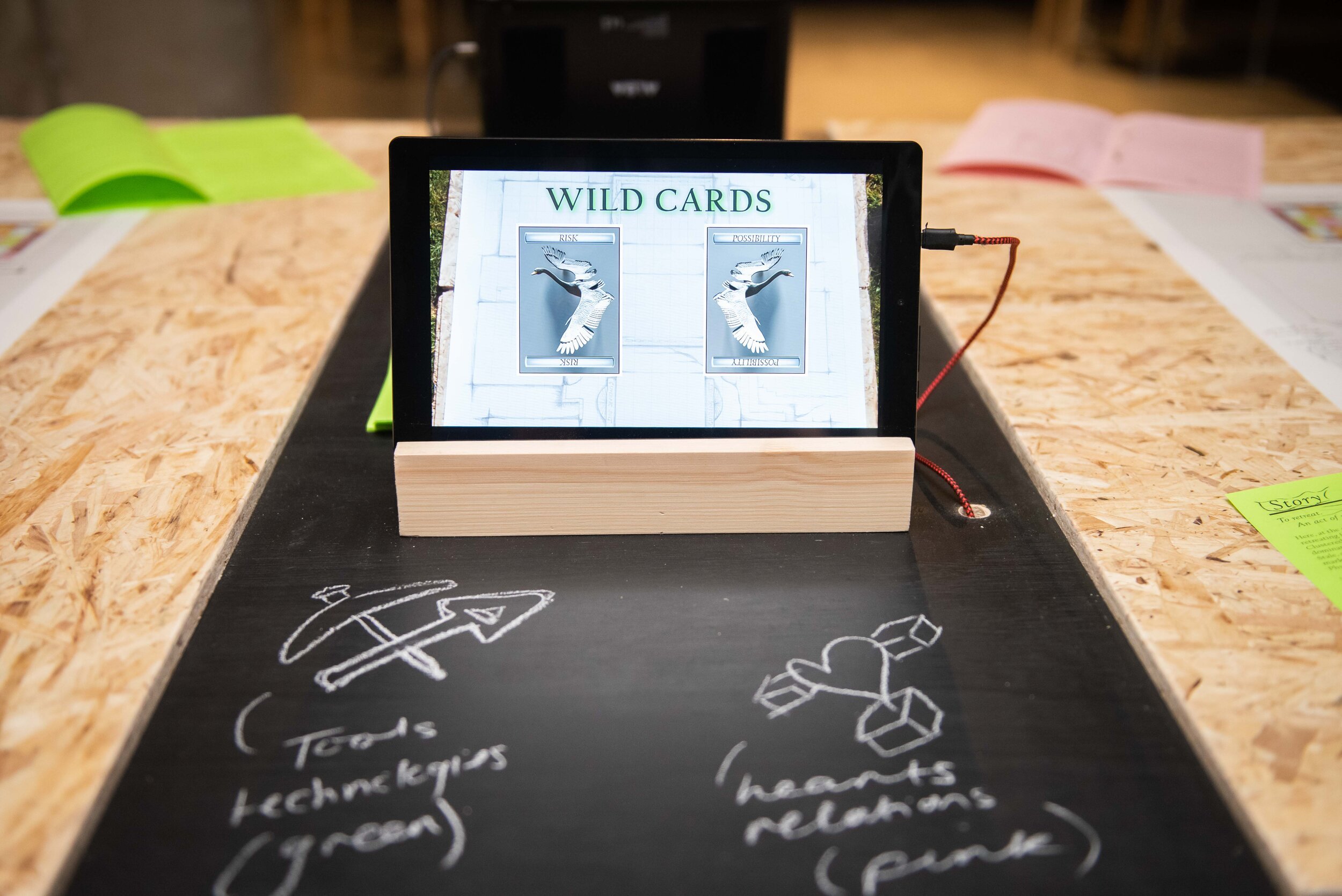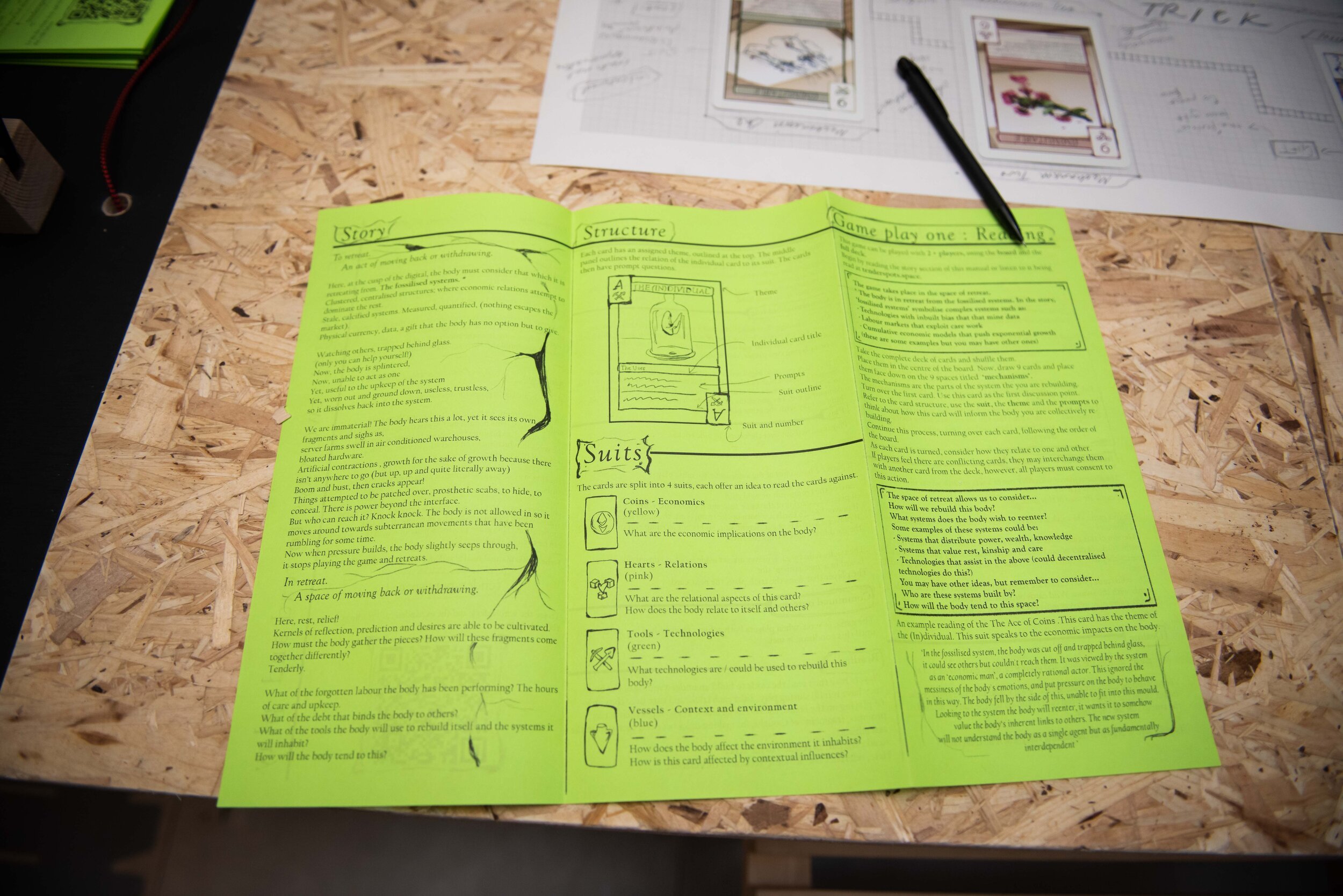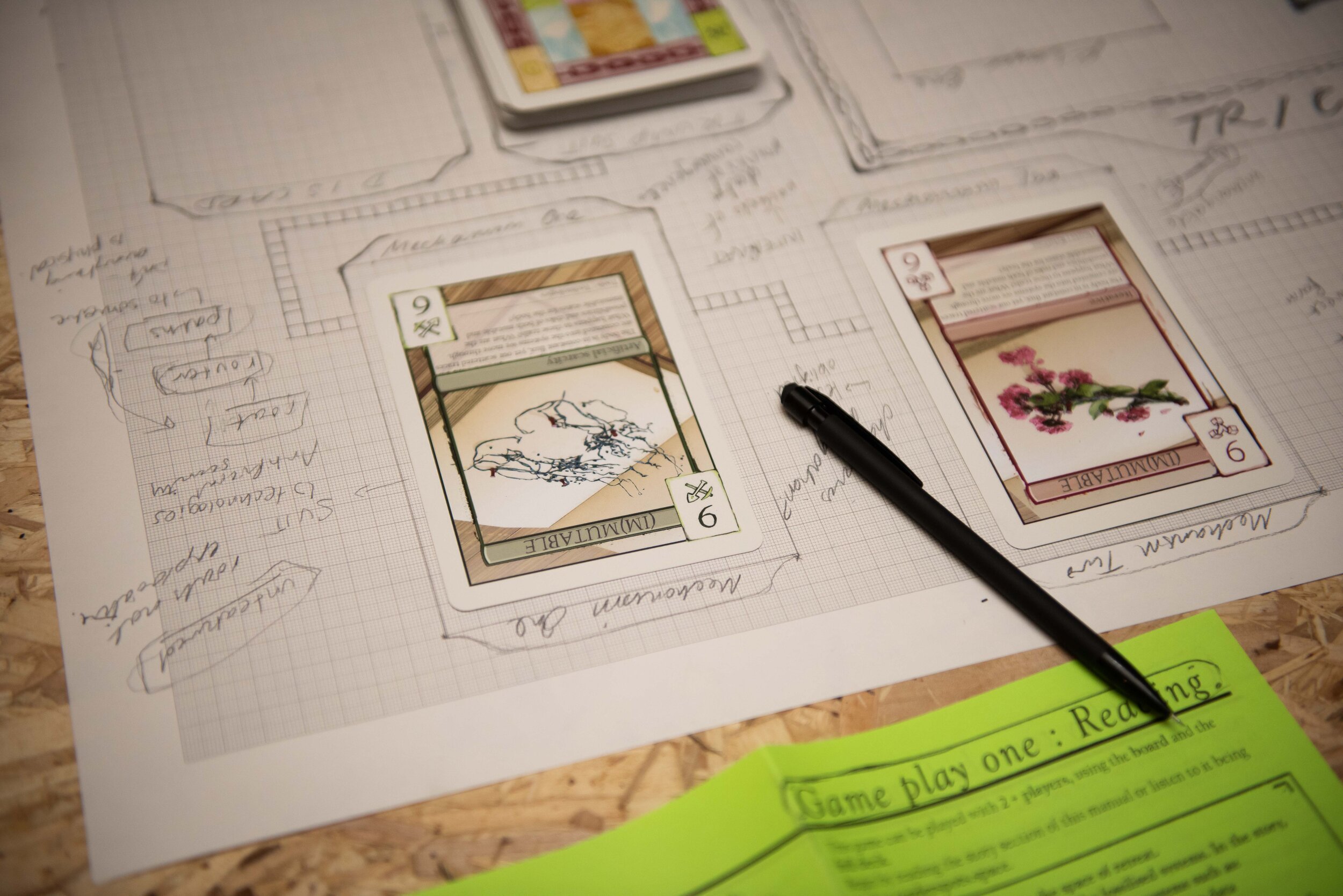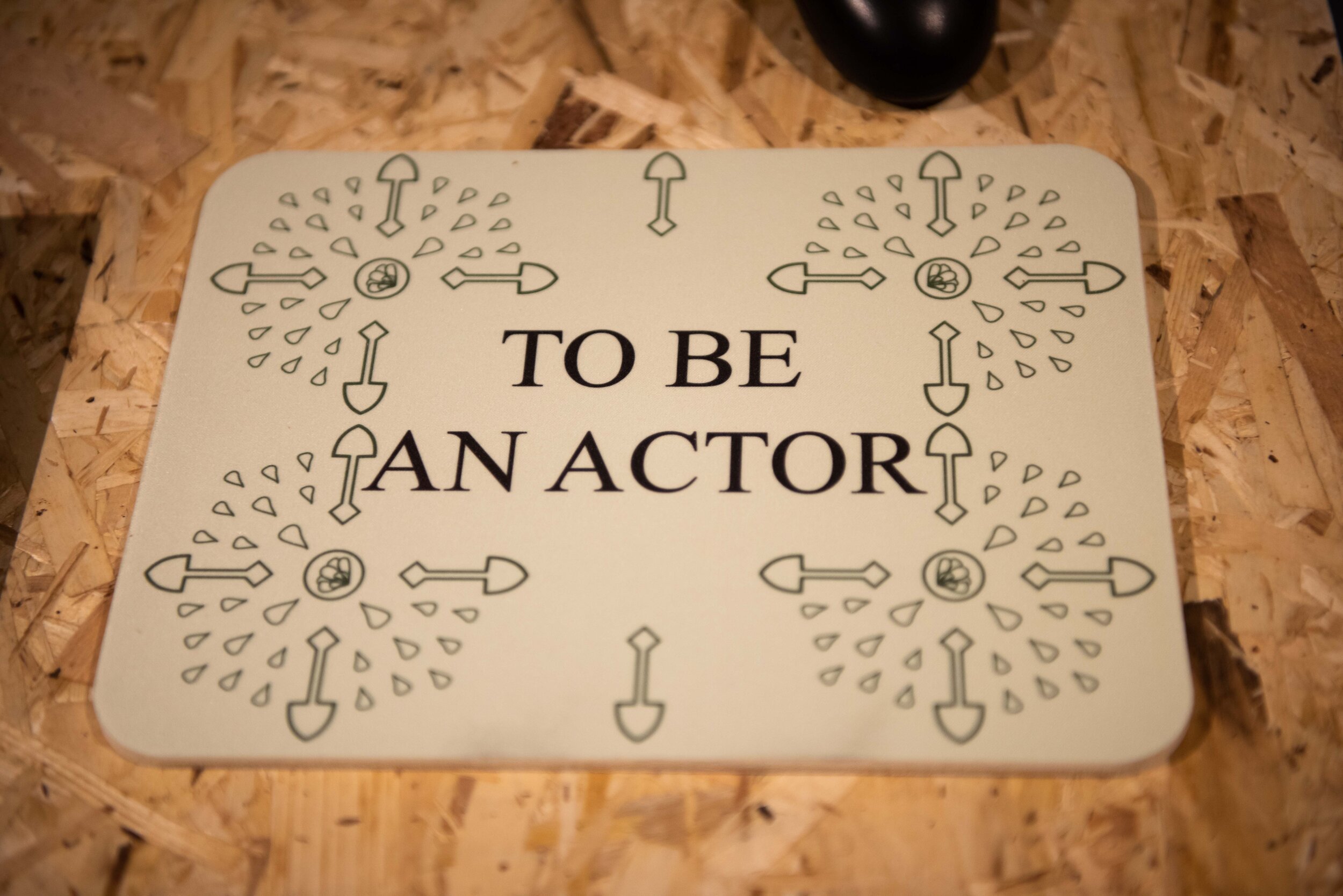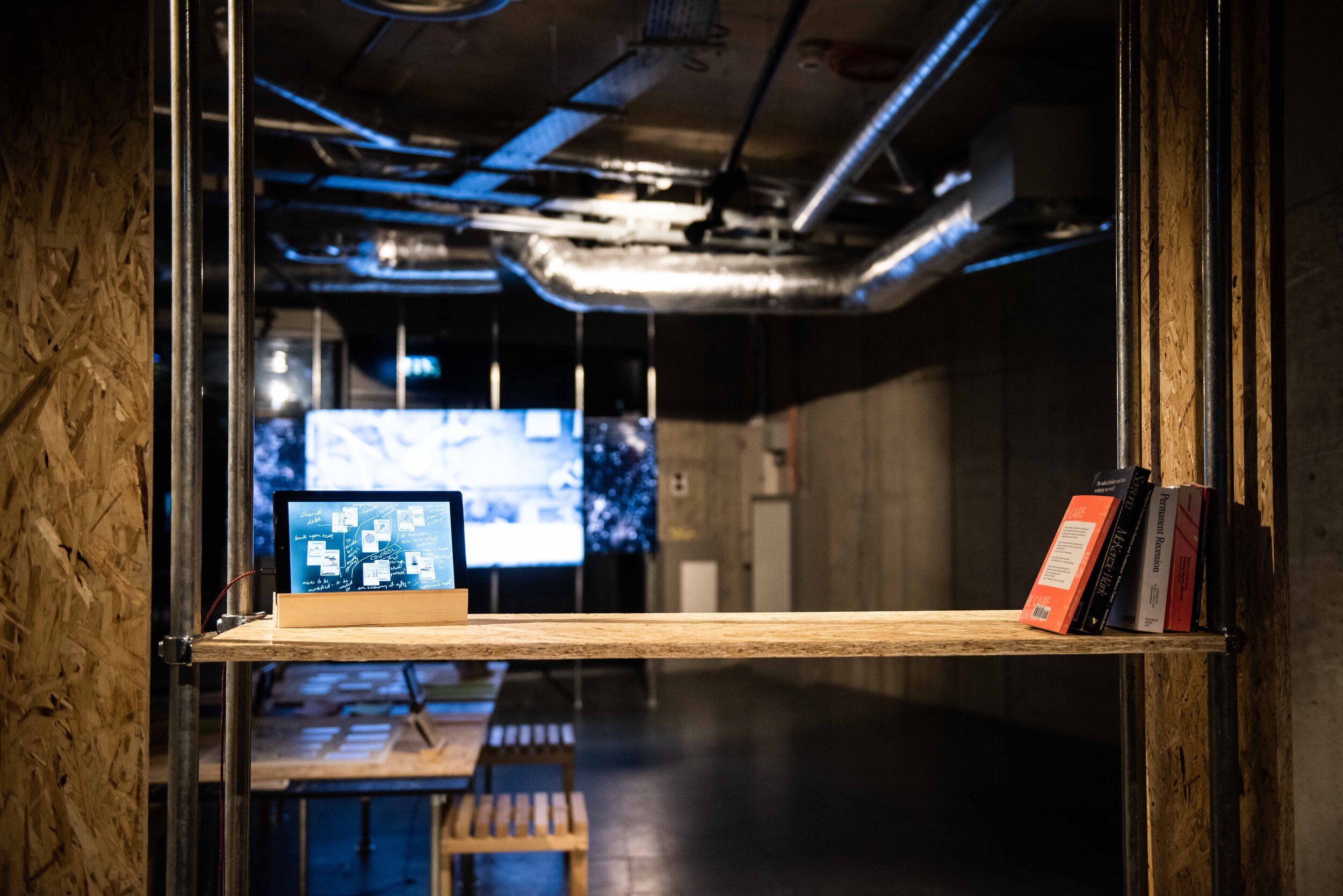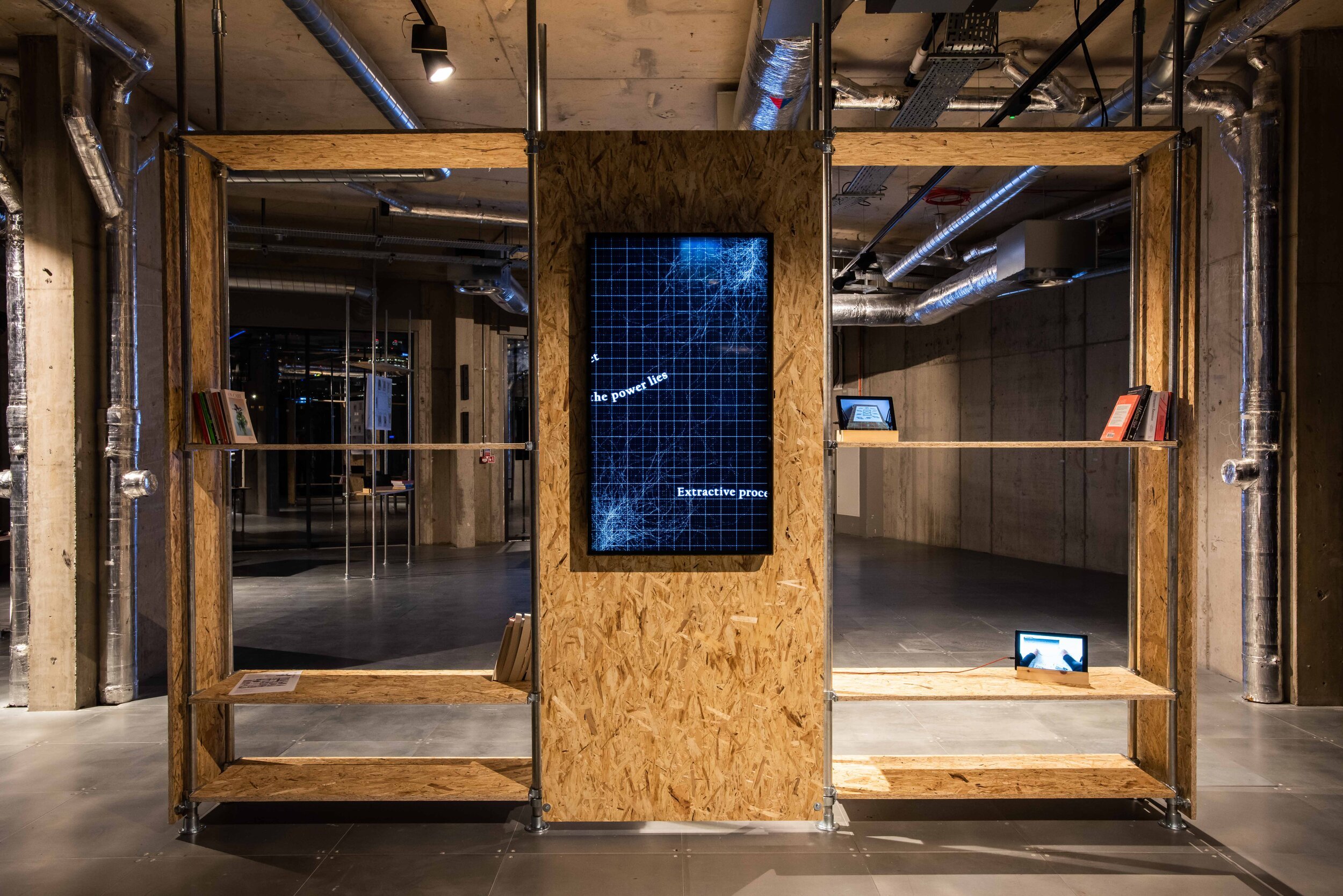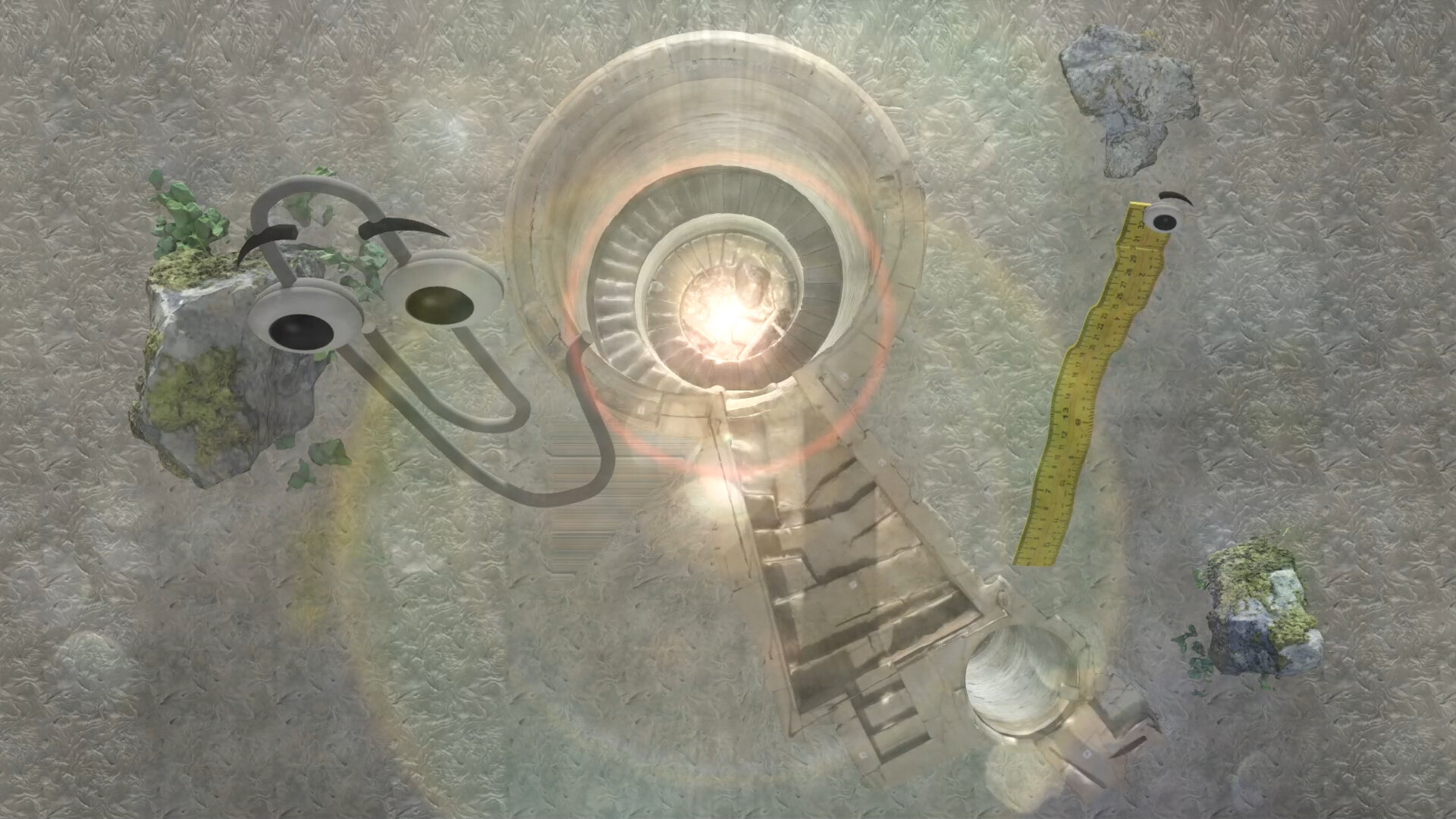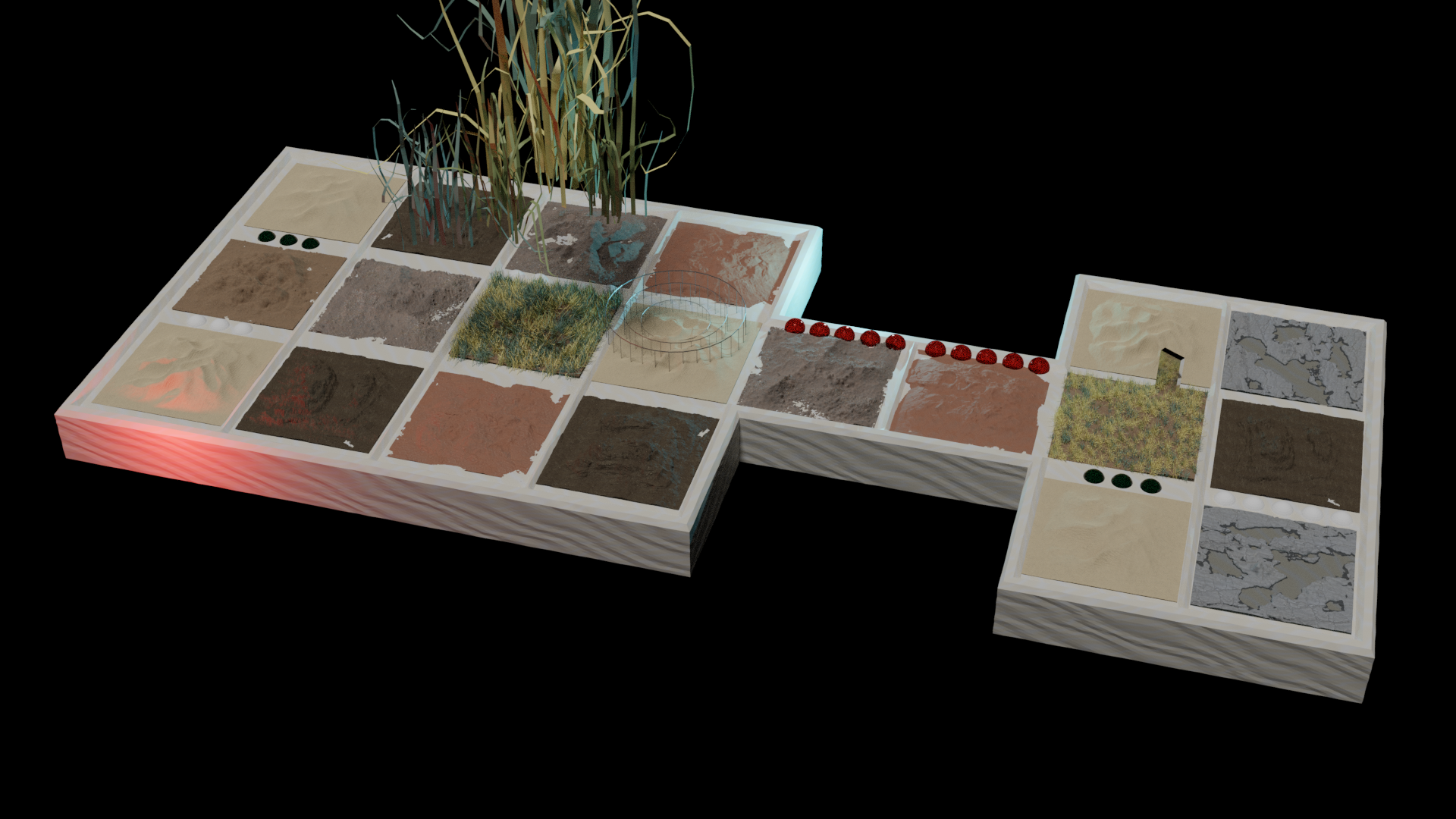tender spots in hard code… fraught with potential, fragile with indecision
Kate Frances Lingard
with works by Rebecca Gill, Leo Robinson and Benjamin Hall,
illustrations by Emelia Kerr Beale and essay by Colm Guo-Lin Peare
Part of arebyte 2021 programme Realities
11 June - 24 July 2021
Challenging the convergence of social, economic and technological space
Kate Frances Lingard is the 2020 finalist from the gallery’s annual young artist development programme, hotel generation. The programme mentors the next generation of UK digital artists, based outside of London, during the critical early stages of establishing a career in the arts.
tender spots in hard code... emerges from the fraught and complex convergence of social, economic and technological space. In trying to navigate this pervasive architecture of power, decentralised and distributed systems hold the potential as organisational tools in the digital commons. [1] They can allow us to rethink the kinds of social relations that structure this space, to prioritise an ethics of care. [2]
Care and its labor has been systematically undervalued, constrained by the distribution and management of economic resources. Popular emphasis on care as an individual and solitary act renders out the necessity of interdependence, those of neoliberal agendas like self-care over communal care. The exhibition looks to an understanding of care as a collective and structural practice not only for others but with others, questioning how care translates into the governance of the digital commons and the relations this is formed upon. By centering and identifying ‘care’ as an essential category of value creation, what is valued does not need to be connected to capitalist-defined profitability. We can begin to see how care work/labour is linked to other non-market realms of value creation, like the commons or gifts, both of which are vulnerable to market changes and enclosure.
EVENTS PROGRAMME
Closing Event
Thursday 22 July, 6 - 8pm
Drinks to mark the closing of the show.
Kate plays live sessions of their card game with audience members, and speaks about the work.
Digital Play Sessions (online)
with Kate Frances Lingard
Sunday 27 June, 1pm & 2pm
Sunday 4 July, 1pm & 2pm
Kate Frances Lingard in conversation with Jazmin Morris and Alice Yuan Zhang (online)
Thursday 17 June, 6pm - 7:30pm BST
Gallery Play Sessions
Tuesdays - Fridays, 5 - 6pm
READ THE EXHIBITION BOOKLET
Guest contributors: Rebecca Edwards, Colm Guo-Lin Peare
I learned of interdependence as my immune system began to attack my nervous system, triggered by the context it was embedded within. From this moment, it became pretty evident that interdependence simultaneously engenders both violence and support. I learned of the body as a blackbox, full of unseen, unknown systems rendered out of our lines of attention. [3]
.. fraught with potential [4]
Still from Leo Robinson’s hypertext contribution (2021).
The early era of the internet brought the dream of tools for producing shared infrastructure and methods of organising, yet we now are experiencing the capturing and enclosure of attention and data; social connections are used to produce value, to make decisions, to surveil. The rise of distributed ledger technology [5] provides alternative modes of organising, such as DAO’s [6] (decentralised autonomous organisations) which offer the flexibility to choose and design incentives and value. However, the promise of their offering must be questioned when they remain imbued with the same libertarian economic ideals of late stage capitalism. Think here of a distributed capitalism [7] or a re-centralisation, built from a culture that privileges autonomy to the point of forgetting interdependence.
What relations do these systems need to be formed upon to create technological infrastructures that support collective welfare? [8]
.. fragile with indecision
Still from Benjamin Hall’s hypertext contribution (2021). Nilometer photogrammetry by Mohamed Abdelaziz.
Turning to games as a means of centering the value forms and architectures of choice that distributed systems produce, play is used as an active discursive form that invites visitors to consider how the game structures they play within engender priorities of attention and relation.
The exhibition involves an illustrated set of standard playing cards, offering the visitor different modes of participation. Through playing a variation of the game Whist (a trick-taking game of bidding) selected and altered by the artist, visitors are invited to play either competitively or cooperatively. Both modes of engagement with the cards provide thought experiments for ways of thinking differently around relationships of people, object and ideology. [9]
The images on the cards use metaphors of the body as portals to the digital commons, blockchain systems and the social relations formed within them; using renders by the artist, alongside commissioned models by Siri Black, Ariel Helyes, Jake Major and India Stanbra. The altered suits – hearts, vessels, tools and coins – gesture towards ideas of relation, bodies, technology and economics. The cards are backed with drawings by Emelia Kerr Beale which respond to the suits, and together with the images on the cards allude to desires of interdependence.
Still from Rebecca Gill’s hypertext contribution (2021)
Accompanying the card game is a collection of hypertext fiction, essays and games made by Rebecca Gill, Leo Robinson and Benjamin Hall, which speaks to the patchwork of thought and multiplicity of perspectives within the exhibition. Each game forks the conversation in new directions, and solidifies the artists relationship to their peers and the notion of decentralisation within making.
The work aims to dissolve the narrative that there is a single privileged vantage point, and instead posits that value comes from collaborative and inclusive methodologies. tender spots in hard code… looks to the perspective of a learner, to the process of study, to the non-expert, to value creation through play and asks if love, care and intimacy of relationships can alter deeply rooted ideologies surrounding existing frameworks of the financial, societal and the political realms.
We don’t need totalizing narratives but a proliferation of daydreams: lateral, experimental, and situated within the localities of political experience. We need to imagine systems that read signals other than market signals, that answer to dreams other than Silicon Valley dreams. [10]
Footnotes:
The digital commons are a form of commons involving the distribution and communal ownership of informational resources and technology. Resources are typically designed to be used by the community by which they are created
An “ethics of care" implies that there is moral significance in the fundamental elements of relationships and dependencies in human life. Normatively, care ethics seeks to maintain relationships by contextualising and promoting the well-being of caregivers and care-receivers in a network of social relations
The body as a multilayered and integrated set of systems that is fundamentally ambivalent. ‘ ...the body serves both as point of departure and as destination.’ Henri Lefebvre. Taken from Russell, L. (2020). GLITCH FEMINISM : a manifesto. S.L.: Verso.
‘You're not where you think you are.In hypertext, everything is there at once and equally weighted. It is a body whose brain is dispersed throughout the cells, fraught with potential, fragile with indecision, or rather strong in foregoing decisions, the way a vine will bend but a tree can fall down.’ Shelley Jackson, STITCH BITCH: the patchwork girl. [online] Available at: http://web.mit.edu/m-i-t/articles/jackson.html
A distributed ledger (also called a shared ledger or distributed ledger technology or DLT) is a consensus of replicated, shared, and synchronised digital data geographically spread across multiple sites, countries, or institutions.
A decentralised autonomous organisation (DAO), sometimes labeled a decentralised autonomous corporation (DAC), is an organisation represented by rules encoded as a computer program that is transparent, controlled by the organisation members and not influenced by a central government. A DAO's financial transaction record and program rules are maintained on a blockchain.
...that privileges individuality over interconnectedness, that whittles down to an idea of the self / the collective, the high probability of reproducing systems we are already in.
Care can intersect these dichotomies and circulate outside them. It has its own economy, one based on generosity rather than scarcity.
It is…‘not the nature of technologies themselves, but rather, the discourse that surrounds them, that guides how these technologies are appropriated by a society.’ Taken from networkcultures.org. Institute of Network Cultures | Radical Care: Embracing Feminist Finance. [online] Available at: https://networkcultures.org/blog/publication/radical-care-embracing-feminist-finance/
Zhexi Zhang, G. (2018). Systems Seduction: The Aesthetics of Decentralisation. Journal of Design and Science.
ARTIST BIOS
Kate Frances Lingard lives and works in Glasgow. At the moment, they are thinking about how to enact an ethics/politics of care within the digital commons. Working with digitally created images, objects, environments and playing around with programming, they hope to question systems that define how we act and live together. Recently, they have been working with friends and collaborators to discuss the possibilities and complexities of decentralised and distributed technologies as shared infrastructure.
Rebecca Gill is based in Glasgow. Her research interests include (re)distributions of power in network politics, game theory and technologies, and the possibility for accessing/organising in digital space through these.
Leo Robinson is a multimedia artist living and working in Glasgow whose practice stems from his own meditations and inner experiences. Robinson's work observes the existing canon of world religions, magic and spirituality and creates new mythologies with the aim of fluidifying this canon into a living fabric of narratives using an array of re-appropriated images and symbols.
Benjamin Hall is an artist working in film, new media, animation, installation, creative computing, printmaking and writing. His work is concerned with the expectations and formatting issues attached to ‘content-creation’ and the communities that form around them, on and off the internet.
Emelia Kerr Beale is a Nottingham born artist currently based in Glasgow. Working across drawing, sculpture and textile, their work explores the relationship between imagination and resilience, and seeks to create moments where anxiety and joy can intersect. They also think about interdependence, dedication, exhaustion, and things that do not yet seem possible.
Colm Guo-Lin Peare is a former committee member of Transmission Gallery and currently sits on the Advisory Board of LUX Scotland. Recent contributions to conferences and panels include Reorganising Cultural Institutions, BALTIC, Systems are doing it for themselves, Embassy Gallery and Edinburgh College of Art, and A Place for the Work and the Human Being, The Common Guild.
DESKTOP TOUR
Series hosted by artist Marc Blazel where artists talk through their desktop, key folders, bookmarks, and software they use in their work.

